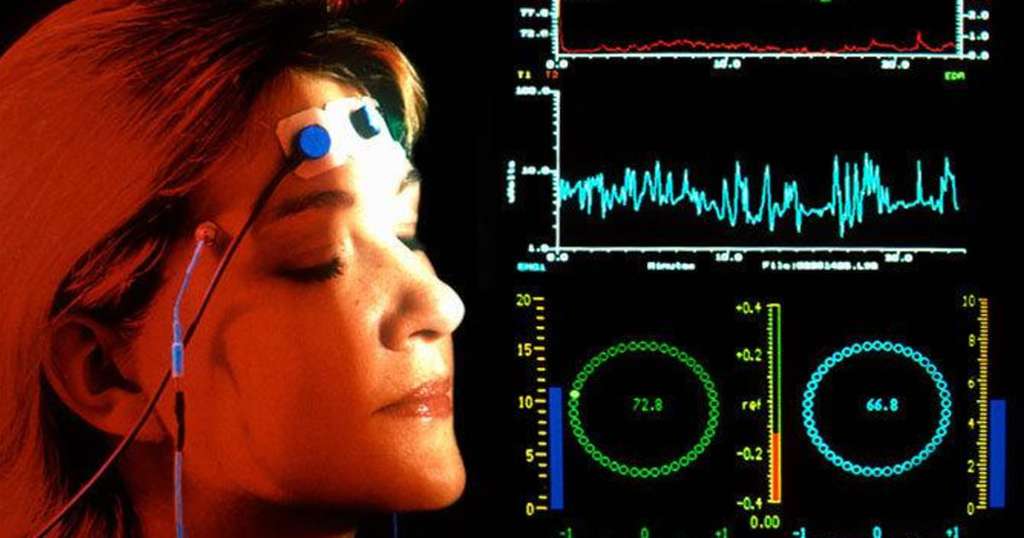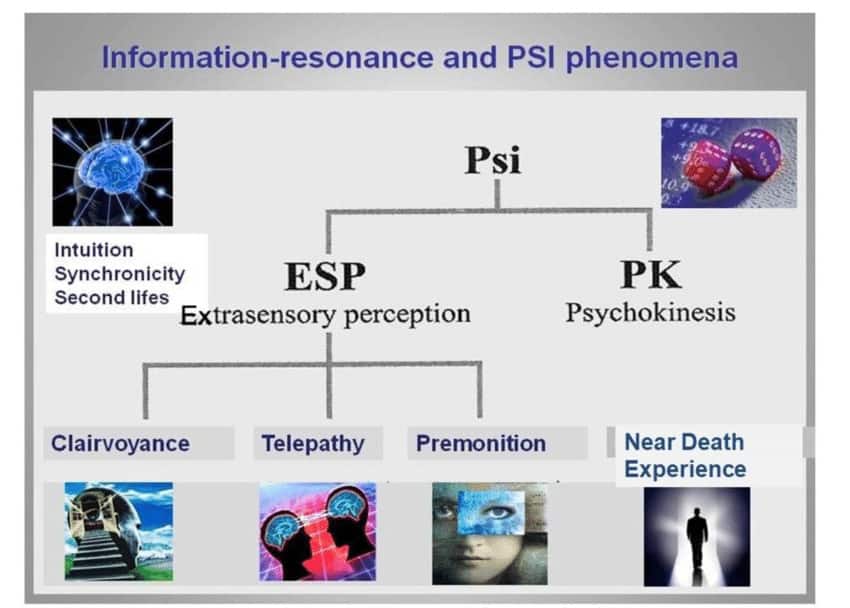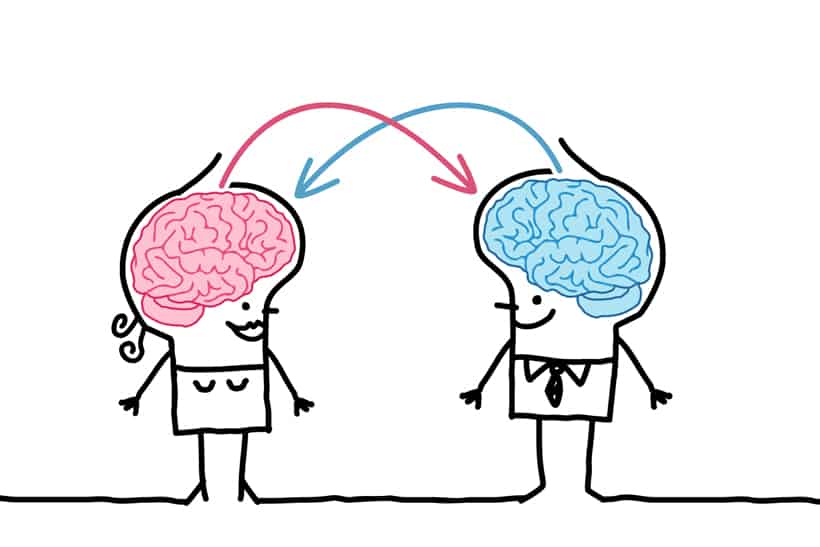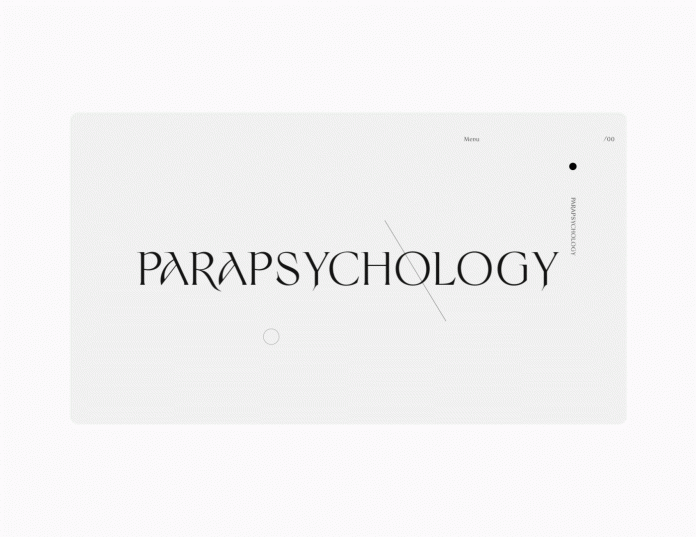Parapsychology’s association with various fringe subjects has undoubtedly tarnished its reputation as a science. Various publications, the media and sceptical organisations have put Parapsychology in with astrology, Loch Ness, occult practices, UFOs, witchcraft, yeti etc. For this reason it is important to define exactly what Parapsychology is.

ESP and PK
The phenomena examined by parapsychologists are traditionally divided into two branches of phenomena – ESP (Extra Sensory Perception) and PK (PsychoKinesis) – collectively called Psi. ESP is a term for three alleged processes:
- Telepathy: Mind to mind interaction
- Clairvoyance: Mind to object interaction
- Premonition: Prediction of future events (i.e. Mind to future interaction)

PK refers to the influence of the mind on inanimate objects. Inanimate objects can be influenced in such a way as to be seen by the naked eye, for example spoon-bending (i.e. macro PK), or at a level only recorded by monitoring equipment, for example slowing down the decay of radioactive material (micro PK). Within these quite broad definitions lie other phenomena that are interpreted as having similar processes to those defined above.

For example, poltergeist phenomena (i.e. the action of a ‘mischevious’ spirit entity that includes movement of objects, electrical disturbances, spontaneous fires etc.) is interpreted by some parapsychologists as phenomena caused by the unconscious PK ability of a person within the investigated house rather than a spirit (so it is, therefore, also known as RSPK – Recurrent Spontaneous PsychoKinesis).

Another example is the quite broad area of After Death Communication (ADC) which could be the witnessing of apparitions, or ghosts, of the dead or the interactions of a medium with departed personalities (in a séance setting, or one-to-one with a client, or in an alleged haunted house). This latter form of paranormal communication is seen as analogous to telepathic communication and, hence, comes under the remit of parapsychologists.

- What Is Aromatherapy Vs. What Are Essential Oils?
- What is La Tomatina in Bunol, Spain Like? What to Expect at the Famous Tomato Throwing Festival
Finding the Proof or the Process
Present-day parapsychologists frequently fall into one of two camps – process-oriented or proof-oriented parapsychologists. Proof-oriented researchers design experiments to find proof of phenomena amongst the general population or in a subsection of the population who profess particular abilities, known as special claimants (e.g. self-professed psychics or mediums).

Process-oriented researchers begin from the standpoint that the phenomenon exists and try to find the conditions under which it best operates (e.g. are females more telepathic than males? Are believers better at ESP than non-believers? Is a relaxed atmosphere more conducive to telepathy?). Conversely, some process-oriented researchers, who often do not describe themselves as parapsychologist, begin from the standpoint that the phenomenon exists but that there is a perfectly normal explanation for it.

Subsequently, their experiments either attempt to provide evidence of such normal explanations or design experiments that rule out all possible normal explanations thereby testing the idea that under such circumstances the phenomenon will not be revealed.
Parapsychologists are not Ghostbusters, Exorcists or Psychics.

In fact, because Parapsychology is a science it clearly distances itself from many of the bizarre topics it is normally associated with. A distancing that is greater than the distance between Nessie and the shores of Loch Ness or even between a flying saucer and its home planet!


















